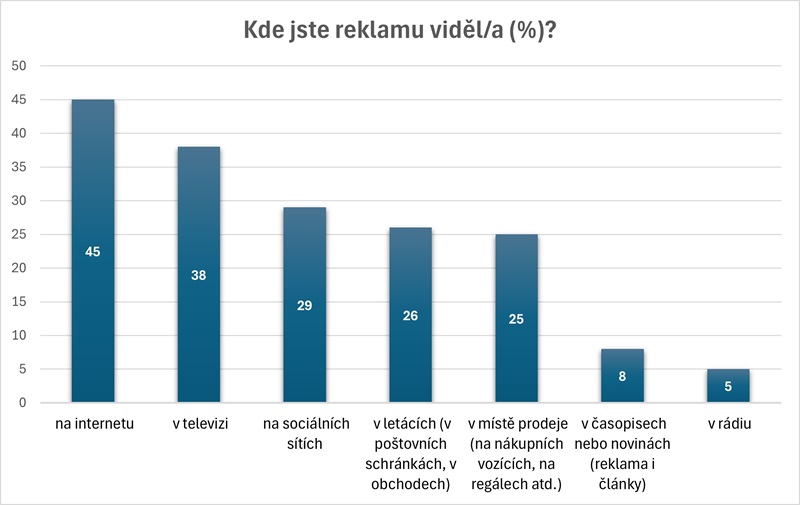Czechs' attitudes towards advertising have stabilised in recent years, but there are still clear trends reflected in their buying behaviour and the level of distrust of advertising messages. The new edition of the regular Czechs and Advertising survey from Czech Marketing Company shows that two-fifths of the population have bought a product based on advertising in the last three months. The most frequent respondents were young people and women, who respond more to advertising on social networks. The older generation, on the other hand, is mainly influenced by TV spots and flyers. Overall, then, people are most likely to notice advertising on the internet and on television.
 Source: Česká marketingová společnost, n = 238
Source: Česká marketingová společnost, n = 238The proportion of people who find advertising useful in purchasing decisions stood at just under two-fifths. Most people recall ads for food, cosmetics and drugstores. Point-of-sale advertising is still considered the most acceptable when it comes to things like tastings or presentations.
People perceive the most advertising on commercial TV stations such as Nova and Prima, where the feeling of saturation is also highest. Even so, this indicator has decreased slightly compared to previous years. In contrast, the feeling of advertising saturation is increasing in places of sales and on social networks. However, as already mentioned, point-of-sale advertising is still the most acceptable.
Nearly 40% of Czechs say they are bothered by advertising in historic downtowns.
In the long term, advertising for cigarettes elicits the most negative reactions. More than two-fifths of people would ban it altogether, with older generations and people with a high school or university education having the strongest attitudes. Tolerance of advertising for hard alcohol and energy drinks is also declining.
As for political advertising, most people agree that it should be decent and not spread misinformation. It should also be controlled. Trust in political advertisements is particularly low, with only 16% of people believing them.
Overall, trust in advertising remains low among Czechs. Just under a quarter of the population fully trust it, while celebrities help the credibility of ads with less than half of people. However, the trend of increasing distrust in advertising messages has been slightly decreasing over the last two years. Interestingly, more than 70% of Czechs would welcome media education in schools.
For the full report, see Czechs and Advertising 2025.
Source: mediaguru.cz

